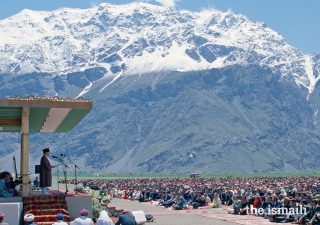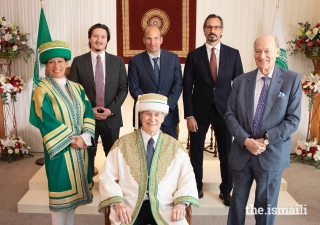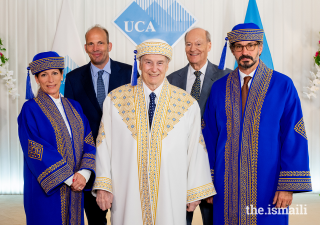What's New
Embracing new technologies and investing in innovation is perhaps no longer a choice, but a necessity. In line with this view, Imamat and Jamati institutions in Pakistan are harnessing the potential of digital transformation to improve lives across the region.
Covid-19 has amplified the pervasive presence of technology in human life, especially among children. According to a report by Qustodio, screen time among children doubled after the onset of the pandemic. Technology proved to be an invaluable asset to society over the past year, but it's unfettered use does not come without risks. By teaching moderation and discretion at home, parents can help their children reap the benefits of technology while avoiding its pitfalls.
In this insightful conversation with The Ismaili, Rahim Hirji details the ways in which technology is having a growing influence on our everyday lives, covering topics from artificial intelligence and robotics, to social media and education. Detailing some of the opportunities and risks this presents, Rahim suggests how we might prepare for an increasingly digital future.
To celebrate the occasion of Roz-e-Nur this week, The Ismaili is pleased to share From a Thousand Years ago into the Next Millennium, a 93-minute film of Mawlana Hazar Imam’s historic first visit to the Tajikistan Jamat in May 1995.
Graduation ceremonies often signify moments of avid hope and possibility. The Aga Khan University’s first ever global convocation was no different, as hundreds of graduands — all dressed in green convocation robes — celebrated with faculty, trustees, and guests, while a worldwide audience participated in the virtual festivities.
During the course of the pandemic, the Jamat has adapted to an increased use of technology. It is inspiring to see how Ismailis around the world have taken this transition in stride, as can be seen by the founding of The Ismaili TV, the hundreds of virtual events and programmes that have been offered, as well as the individual contributions of time and knowledge the global Jamat has provided.
Azima Dhanjee, a Pakistani entrepreneur, co-founded ConnectHear, a platform that generates sign language interpreters and seeks to increase deaf accessibility and inclusion in Pakistan.
Ethiopian-American novelist Maaza Mengiste delivered the Global Centre for Pluralism’s eighth Annual Pluralism Lecture today, 19 May, following opening remarks by Princess Zahra. The lecture, entitled “The Moment of Encounter: History, Disruptions, and Transformations” was held virtually, in partnership with the University of British Columbia.
From the very beginnings of Islam, the search for knowledge has been a central tenet. With the role of science and technology becoming indispensable in the current era, it is important to keep up with current advancements and understand the significance of these fields in our daily lives. Science and Technology Unleashed is an original The Ismaili TV series which premiered in 2020 and is designed to expose the wonders of science in a thought-provoking, educational, and entertaining way.
In the modern age of commerce, one cannot ignore technology’s rapid development and impact on business any longer. Technological advancements such as artificial intelligence and cloud computing are significantly altering the blueprint on which both multinational corporations and start-ups alike conduct business.
When the United States government released a service that supported users in finding a vaccination site near them, Ontario-native Zain Manji realised there was nothing stopping him from creating a similar tool for Canadians.
In his capacity as Chancellor of the Aga Khan University, Mawlana Hazar Imam will deliver an address at the University’s first ever global convocation on 22 May 2021. The special virtual ceremony will bring together AKU’s graduating classes in Kenya, Pakistan, Tanzania, Uganda, and the UK, for a unique celebration of knowledge and learning.














